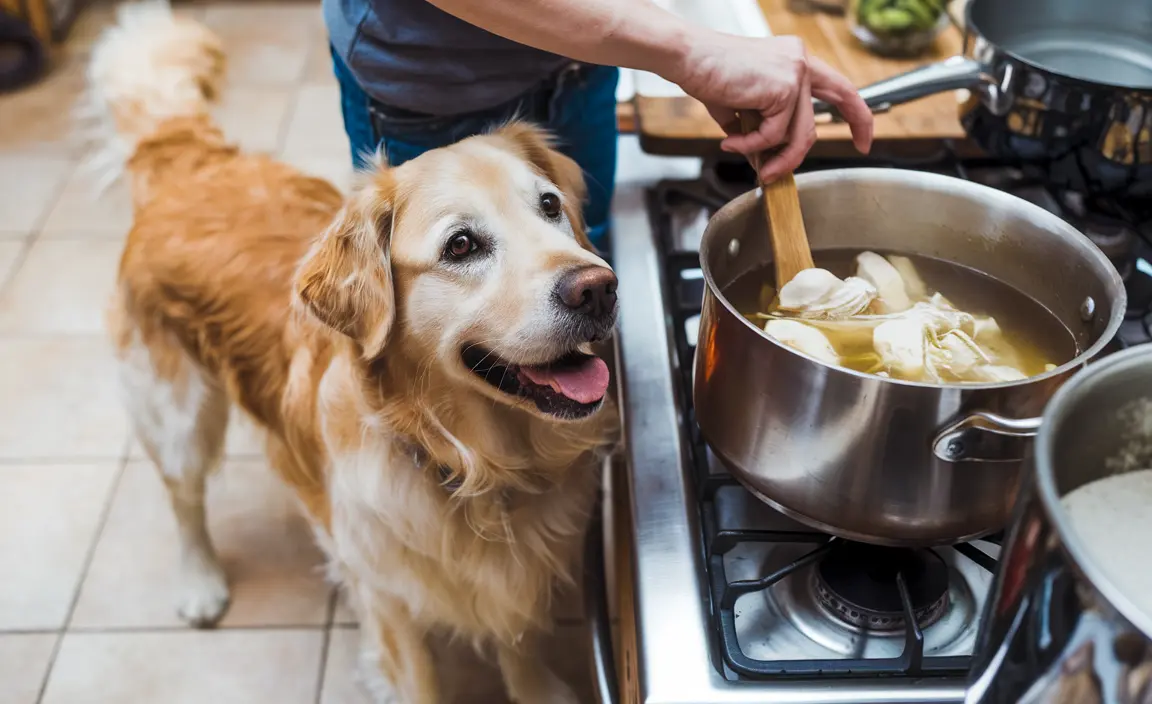Dog owners are always looking for ways to enhance their furry friend's diet and overall health. Bone broth has emerged as a nutritional powerhouse that can provide numerous benefits for dogs when prepared and served correctly. This comprehensive guide will explore everything you need to know about incorporating bone broth into your dog's diet, from its incredible health advantages to safe preparation methods.
As a nutrient-dense supplement, bone broth offers more than just a tasty treat – it's a potential game-changer for your dog's wellness. Whether you have a senior pup struggling with joint issues or a picky eater needing a nutritional boost, bone broth might be the solution you've been searching for.
Understanding the Health Benefits of Bone Broth for Dogs
Bone broth is far more than a simple liquid – it's a concentrated source of essential nutrients that can dramatically improve your dog's health. The slow-simmering process extracts valuable minerals, amino acids, and collagen that support multiple aspects of canine wellness.
Nutritional Powerhouse for Canine Health
The nutrients found in bone broth can provide substantial health benefits, including:
- Supporting joint health and mobility
- Improving digestive function
- Enhancing skin and coat condition
- Boosting overall immune system performance
- Providing hydration and additional nutrient intake
Digestive System Support
The gelatin in bone broth acts as a natural gut-healing agent. For dogs with sensitive stomachs or food allergies, this natural supplement can help seal the gut lining and promote better digestive health. The easily digestible proteins can also help dogs with chronic digestive issues maintain better nutrient absorption.
Safe Preparation and Serving Guidelines
While bone broth offers incredible benefits, proper preparation is crucial to ensure your dog's safety and maximize nutritional value. Homemade bone broth is always recommended over store-bought alternatives, which may contain harmful additives.
Key Preparation Tips
- Use only pet-safe bones and vegetables
- Completely strain out bone fragments
- Avoid adding salt, onions, or garlic
- Cool the broth before serving
- Refrigerate leftovers for up to 7 days
Recommended Serving Sizes
Portion control is essential when introducing bone broth to your dog's diet:
- Small dogs: 1-2 tablespoons daily
- Medium dogs: 2-4 tablespoons daily
- Large breeds: Up to 1/2 cup daily
Always consult with your veterinarian to determine the ideal amount for your specific dog's needs and health condition.
Potential Risks and Precautions
While bone broth is generally safe, pet owners should be aware of potential risks:
- Monitor for allergic reactions
- Avoid store-bought broths with high sodium content
- Watch for digestive upset during initial introduction
- Be cautious with dogs having pre-existing health conditions
Best Practices for Incorporating Bone Broth
When to Offer Bone Broth
- As a nutritional supplement to regular meals
- During recovery from illness or surgery
- For dogs with joint or digestive challenges
- As a hydrating treat for picky eaters
Frequently Asked Questions
Is bone broth good for dogs and what health benefits does it provide?
Bone broth offers multiple health benefits, including improved joint health, better digestion, enhanced nutrient absorption, and support for overall immune function.
How do I safely prepare and serve bone broth for my dog at home?
Use pet-safe bones, avoid seasonings, strain completely, cool before serving, and start with small portions while monitoring your dog's response.
What ingredients in store-bought bone broth should dog owners avoid?
Avoid broths with added salt, onions, garlic, preservatives, artificial colors, and excessive seasonings.
How much bone broth can I give my dog daily without causing health issues?
Serving sizes vary by dog size, typically ranging from 1-2 tablespoons for small dogs to 1/2 cup for large breeds. Always consult your veterinarian.
Can bone broth help dogs with joint problems or digestive sensitivities?
Yes, bone broth's collagen and gelatin can support joint health and help heal the digestive tract, making it beneficial for dogs with these specific challenges.






